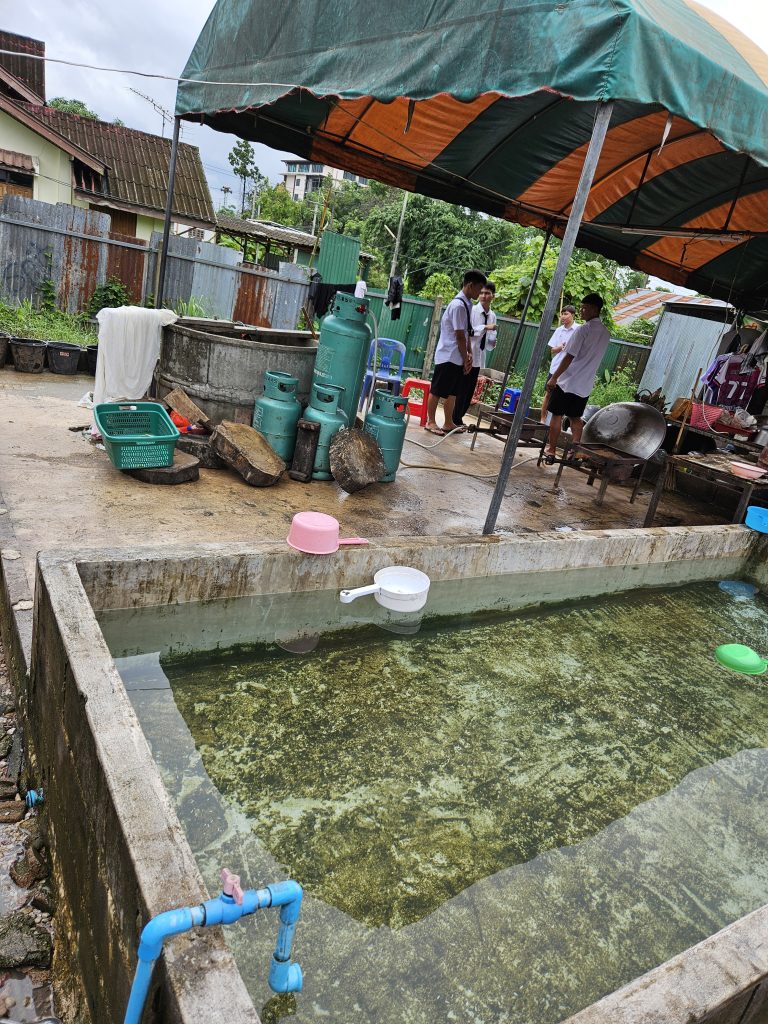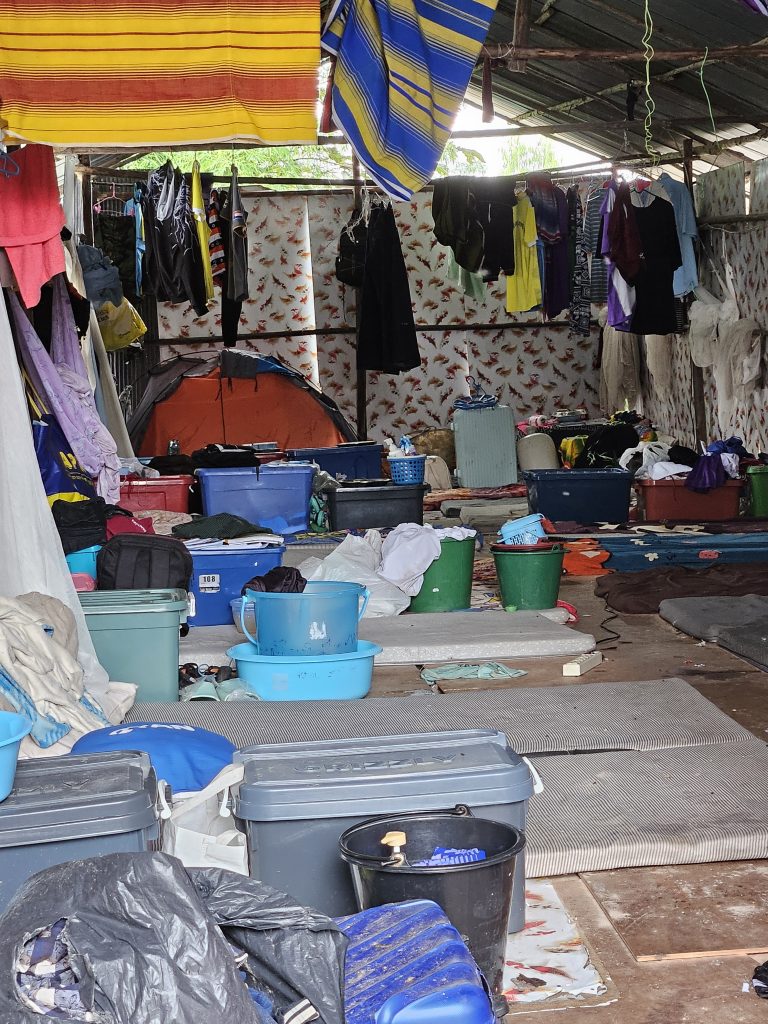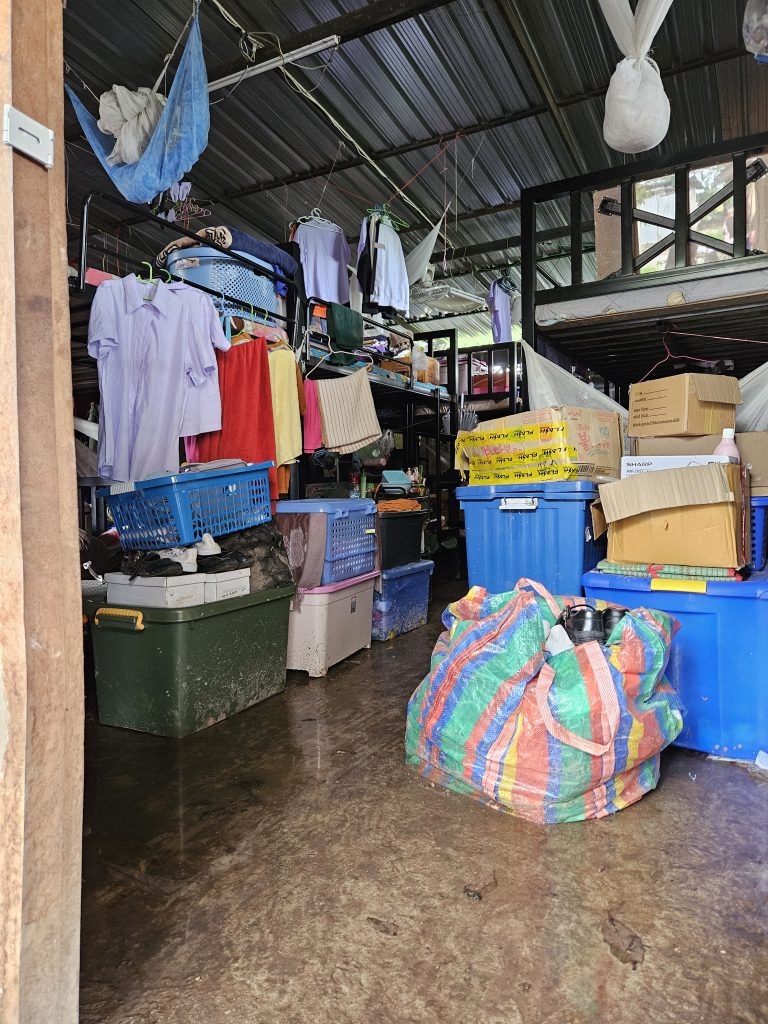This back-to-school season, help Burmese children in schools far from home
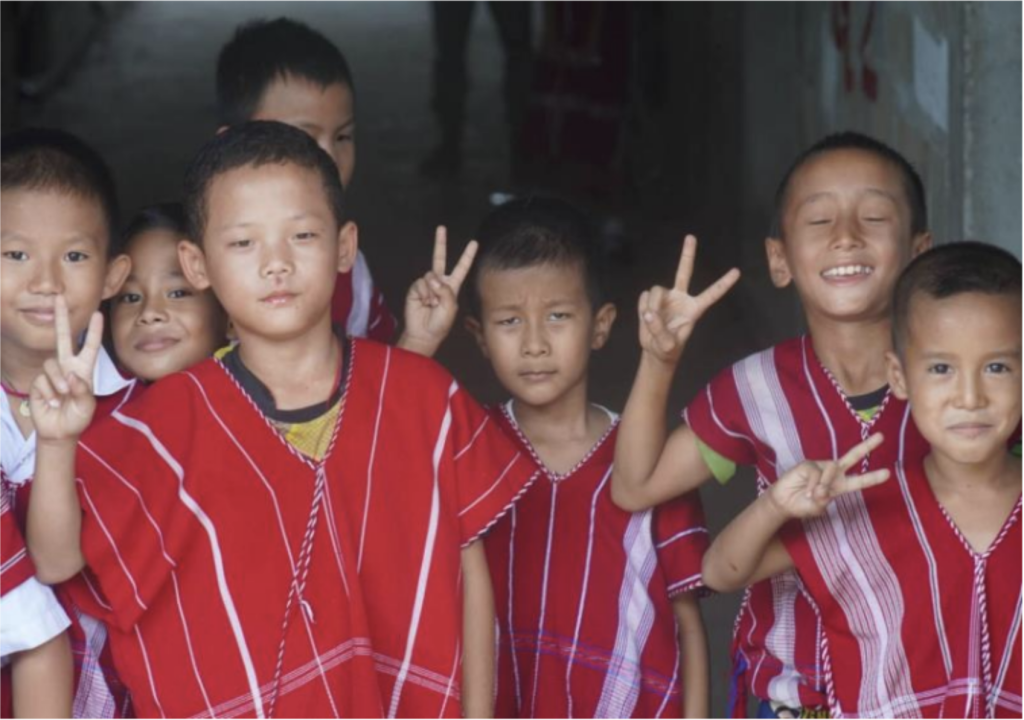
Imagine sending your kids off to school and not knowing if you will ever see them again. That is what parents throughout Myanmar are doing when they send their children across the border to “migrant learning center” community schools in Thailand just so they can survive the civil war ravishing their homeland. Since the country’s 2021 military coup, thousands of families have calculated that their children will be safer on their own in a foreign country rather than back home, where schools are targeted in bombing raids and youth are being rounded up and pressed into military service under a new conscription law.
Despite the heroic efforts of volunteer teachers and community members, living conditions at the learning centers are bleak. Most do not have enough beds or classroom space, grapple with poor sanitation, and can only provide two meals per day. Peace Winds is running a special back-to-school campaign to aid these children, and we are asking for your help to reach our fundraising goal. Click the button below to donate now.
Other ways to help: If you’d like to go a step further to rally support for Burmese children, consider setting up your own fundraiser to support our back-to-school campaign. Past Peace Winds supporters have hosted bake sales, bike races, music performances, and video game livestreams to encourage friends and family to contribute. If you’d like to come up with your own creative way to support this project, scroll down to the green “Start a Fundraiser” button on the right side of our GlobalGiving page. For more information on how to host a GlobalGiving fundraiser, click here.
More about this program:
Burmese children who flee across the Thailand-Myanmar border cannot easily enroll in Thai schools, so local communities have established schools where they are taught by volunteer teachers and, if lucky, can stay in dormitories. These schools have served children fleeing strife in Myanmar’s eastern Karen State over the past several decades, but the ones in Thailand’s Tak Province have been overwhelmed recently. The resumption of fighting has driven a sudden jump from roughly 9,000 students two years ago to more than 18,000 students for the new school year.
The schools were already cramped, situated on rented land (non-Thais are prohibited from owning land) with insufficient infrastructure, but the sudden surge in the numbers of children has pushed them to the breaking point. Teachers, community leaders, and volunteers are making heroic efforts, but the small sums that schools can collect in tuition from parents with the means to pay, plus the donations coming in from local supporters who are already struggling to make ends meet, fall far short of what is needed.
As a result, while the children are safer than back home, they have to make do under terrible conditions. Lessons are often held under open-air canopies with different classes of 40-45 students each sitting feet away from one another, creating a cacophony of teaching instructions, chanted drills, and—in the case of music class—exuberant singing that occasionally is on key.
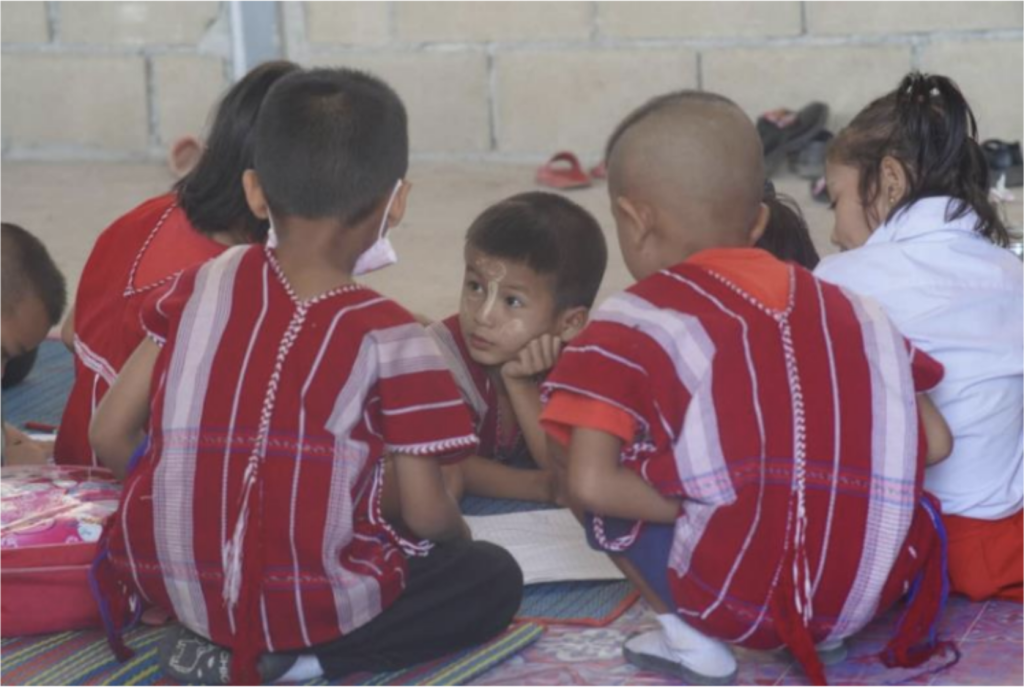
A brief walk takes you to the dormitories, roughly 30 foot x 75 foot bamboo structures with concrete floors that house as many as 120 boys or girls. Students sleep on thin mats or on bunk beds designed to raise them out of the water that sometimes pools on the ground during the rainy season. In some cases, the dormitories are only feet away from the drop toilets that the schools have managed to install—despite the reluctance of landowners to allow permanent structures—and which they struggle to keep in working order. And both are close to the often muddy, open-air bathing area, where students wash themselves down by scooping water from cisterns.
These facilities may have been more suitable a few years ago, but as the number of children doubled, schools have run out of classroom and dormitory space. Students who cannot get a space in the dormitories often must find some way to join classmates who are boarding in groups of five or ten with local families, or else stay unsupervised in groups of 30, 40, or even 50 in rented houses. Parents and teachers worry about sending out children as young as 8 or 10 years old to live in the community, but it is still preferable to the alternative of returning to a war zone.
The students lucky enough to make it into a dormitory get breakfast and dinner—typically rice and vegetables prepared by the students on cooking duty that day, with meat served twice a month. But the schools no longer have enough money for more than two meals a day, so the children with pocket money purchase their own lunches from nearby food stands while their less fortunate classmates may end up going hungry.
Peace Winds has been supporting these ‘migrant learning centers’ by providing students with hygiene kits, including soap, laundry detergent, toothbrushes and toothpaste, menstrual pads, and other hygiene supplies. School officials say they need much more though, from funds for teacher salaries and basic operating costs to food assistance, more hygiene supplies, and money for repairs.
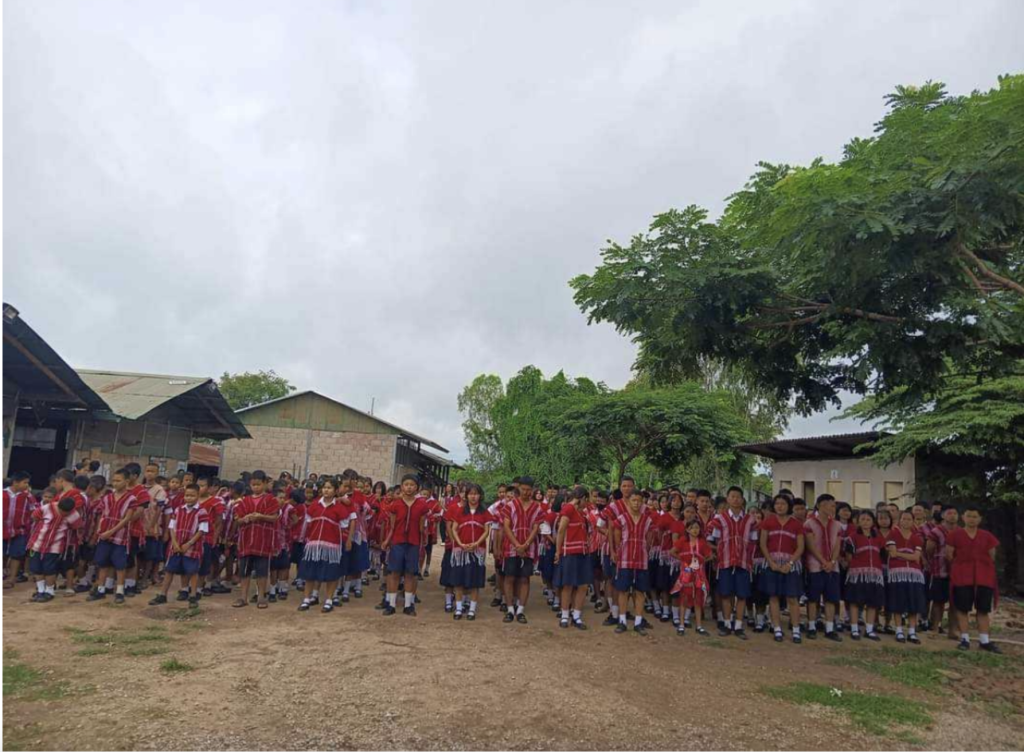
As part of this special back-to-school campaign, Peace Winds is asking for donations to support one of the schools we work with in Mae Sot, Thailand, the Kwe Ka Buang Learning Center. The school was founded by Karen teachers and parents, and it enrolls more than 600 students from kindergarten through 12th Grade, primarily migrant and displaced children who have crossed the Thailand-Myanmar border from Karen State. Roughly half are able to stay onsite in school dormitories, but now that the number of students has increased so dramatically due to the war, the rest are forced to live on their own in the surrounding community.
The 35 volunteer teachers at the school are doing their best to teach and care for the students, but living conditions are difficult and the students lack many basic necessities and face widespread gastrointestinal issues and seasonal illnesses. With your help, Peace Winds will expand what we can offer to Kwe Ka Buang Learning Center and similar schools, which desperately need help until the day when it is safe for the children to go home and to see their parents again.
Please click to donate via credit card. If you would like to donate cryptocurrency, please click here. We thank you for your continued support.
